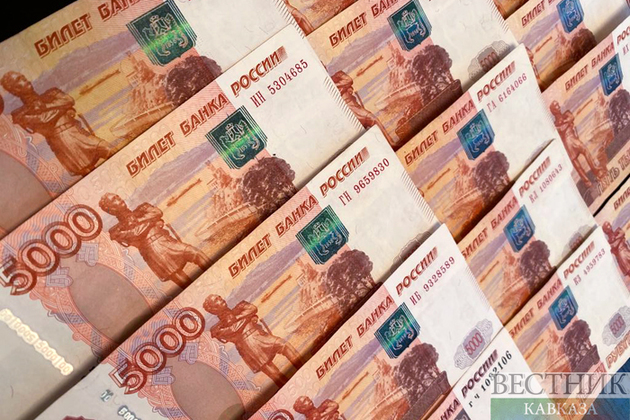India and Russia will have currency swaps in place to finance trade in rupees and rubles, bypassing the US sanctions regime against Russia, the president of India’s export association told CNBC Wednesday (March 23). Several of India’s state-owned banks will execute the swaps under the supervision of the Reserve Bank of India, starting as early as next week, according to A. Sakthivel, president of the Federation of Indian Export Organizations (FIEO), Asia Times writes.
Although the volumes of prospective trade to be financed under this swap arrangement are small, the India-Russia agreement, if executed, would be the first open departure from dollar-based system of international trade financing. The US sanctions regime doesn’t extend to Russia’s oil and gas shipments to Europe and Asia, which earn Moscow more than $1 billion a day, and Russia customers do not need to seek alternative financing mechanisms. The India-Russia swap, though, is an open break with the dollar regime.
Saudi Arabia reportedly is considering accepting China’s RMB as payment for oil, but the Gulf countries have released no information on non-dollar oil payments.
India has been an aggressive buyer of Russian oil, reportedly at discounted prices. News media cite a two-million-barrel sale to Hindustan Petroleum and a three-million-barrel sale to Indian Oil, although the true totals aren’t known.
Asian countries now have $380 billion of local-currency swap lines, which allow importers and exporters to pay in their own currencies rather than in US dollars in case of need. The balance of trade would then be settled by transfers among central banks in any acceptable reserve asset, including US dollars or gold. These swap lines remain inactive, as an emergency backup system. But Asian central banks have been eager to expand them. Japan’s central bank is a strong advocate of swap line expansion, according to Asian government sources.
Politically, the activation of the Russia-India swap line is a clear statement from New Delhi that it will pursue its own foreign policy backed by its own financing arrangements. India has remained neutral on the Russia-Ukraine conflict and abstained from voting on UN Security Council resolutions condemning Russia.
In another indication of New Delhi’s distance from Washington, India invited Chinese Foreign Minister Wang Yi to make a “surprise stop” in New Delhi on Friday, Reuters reported Wednesday. The Chinese official is in Pakistan for a conference of the Organization of Islamic Cooperation. This is the first Chinese visit at ministerial level since 2019, when border clashes aggravated relations between India and China. The purpose of Wang’s visit is “normalization of ties with India,” the Hindustan Times reported. China became India’s largest trading partner in 2021, thanks to a surge in India imports from China. In December 2021, India’s imports from China rose to an annual rate of more than $120 billion. India’s biggest export market remains the US, but China is its largest supplier.
The Biden Administration threatened to impose sanctions on Chinese entities that bypass US sanctions, but there has been no word from Washington about a possible reaction to India’s refusal to accept the sanctions regime imposed by the US, Europe and Japan.
Russia is the main supplier of weapons to India’s armed forces. India has ordered Russia’s S-400 air defense system, reportedly the most advanced anti-aircraft and anti-missile defense system available on the world market, at a projected cost of over US $5 billion.
Indian exporters also are eager to fill the gap in the Russian market left by the Western boycott, FIEO’s Sakhthivel told CNBC. “Export to Russia is not much, only in agriculture and pharmacy products. Now that the whole of the West is banning Russia, there will be lot of opportunities for Indian firms to enter Russia,” the trade official said.
President Biden March 22 called India’s stance towards Russia “somewhat shaky,” but Undersecretary of State Victoria Nuland spoke more cautiously the same day in an interview with India’s NDTV. “We have been supporting the sourcing of security needs for Ukraine, along with our allies and partners, from around the world, including some Soviet-era equipment. And those are the kinds of things that we can do with India as it continues to evolve its position,” Nuland told an Indian interviewer.
In a March 22 commentary published on the Chinese website guancha.cn, technology executive Chen Jing argued that China and India had an opportunity to repair relations after the 2020-2022 border clashes. “The opportunity may be precipitated by the Russia-Ukraine conflict, in which China and India have very similar positions. For economic and trade reasons, India needs China. India will be at a disadvantage if it continues to fight with China. It won’t benefit from a border conflict with China, which will only benefit several developed countries, including the United States, Japan and Australia, which want to make trouble. These countries offer no benefits to India,” Chen wrote.






